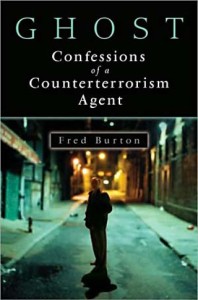 In counterterrorism, there are only three truths: Facts are rare, wins are a matter of interpretation, and sometimes there’s no clear line between the wrong thing for the right reason and just the wrong thing. That triumvirate is the basis for Fred Burton’s autobiography of his time at the Diplomatic Security Service, dwelling in what he calls “the Dark World.”
In counterterrorism, there are only three truths: Facts are rare, wins are a matter of interpretation, and sometimes there’s no clear line between the wrong thing for the right reason and just the wrong thing. That triumvirate is the basis for Fred Burton’s autobiography of his time at the Diplomatic Security Service, dwelling in what he calls “the Dark World.”
His book explains the DSS – one of the oldest U.S. intelligence agencies and the most overlooked – and its role in heading off future attacks and learning preventative lessons from the ones that have already happened. But it’s also Burton’s own sometimes shocking and history-revising memoir of more than a decade of hunting ghosts, from kidnappers in Beirut to assassins in Pakistan. Currently working with Austin-based corporate intelligence consultant Stratfor, he’s been involved in counterterrorism long enough to trace the roots of modern terror organizations, and it’s that institutional memory that pervades the book. Burton thinks like the Maryland beat cop he once was: Even when he became DSS deputy chief, his job was not the why but the who and the what of international terrorism.
He even writes like a cop: In his terse, gumshoe style, he tries to draw the clear distinction between the good guys and the bad guys. But his career has been built around being disabused of that idea. Guilt is not a solid fact but a best guess based on whatever shreds of evidence survive; meanwhile, agencies ignore information that may not be politically expedient and bicker over turf wars. Burton’s tale is one of frustration, of near-misses and cold leads after atrocities. But it also explains why he still feels his is a job that needs doing.